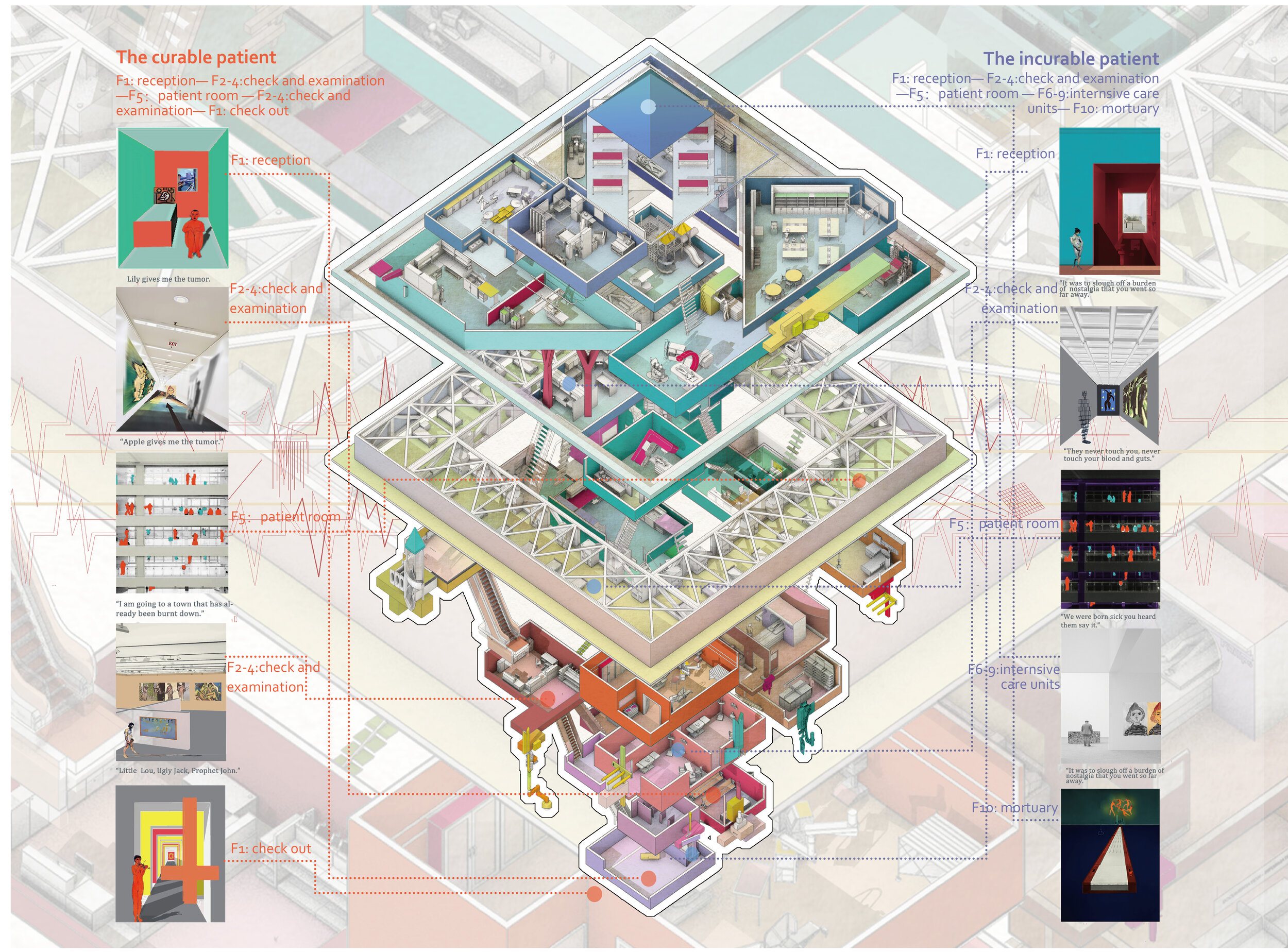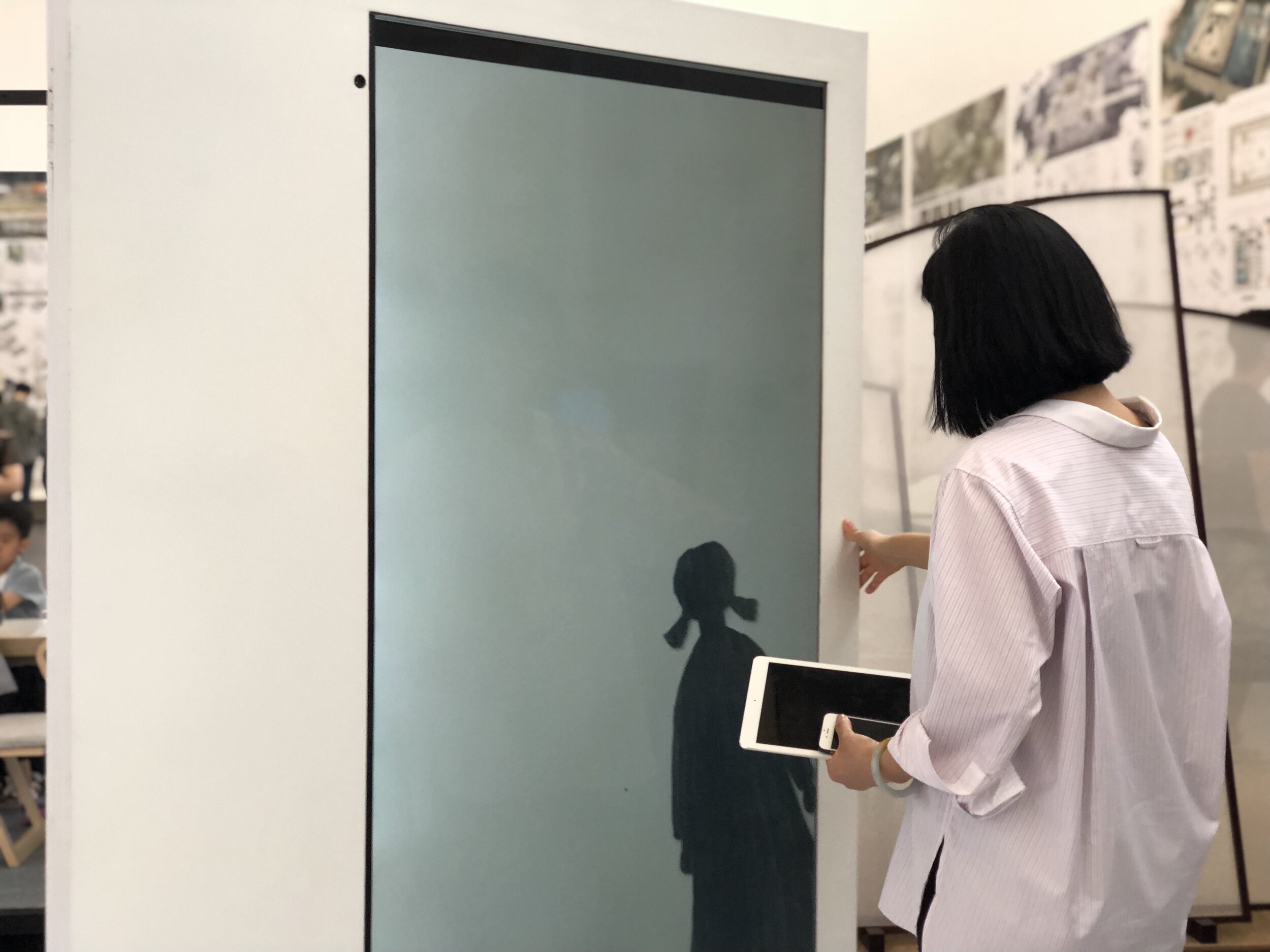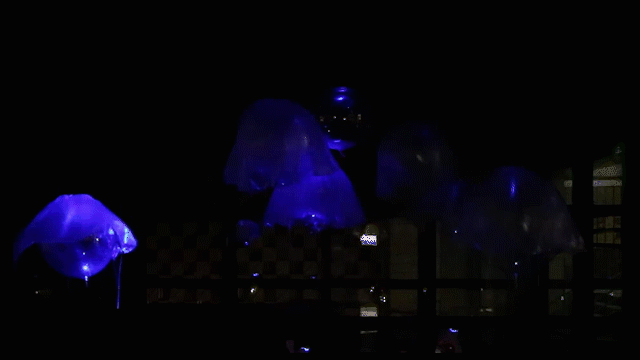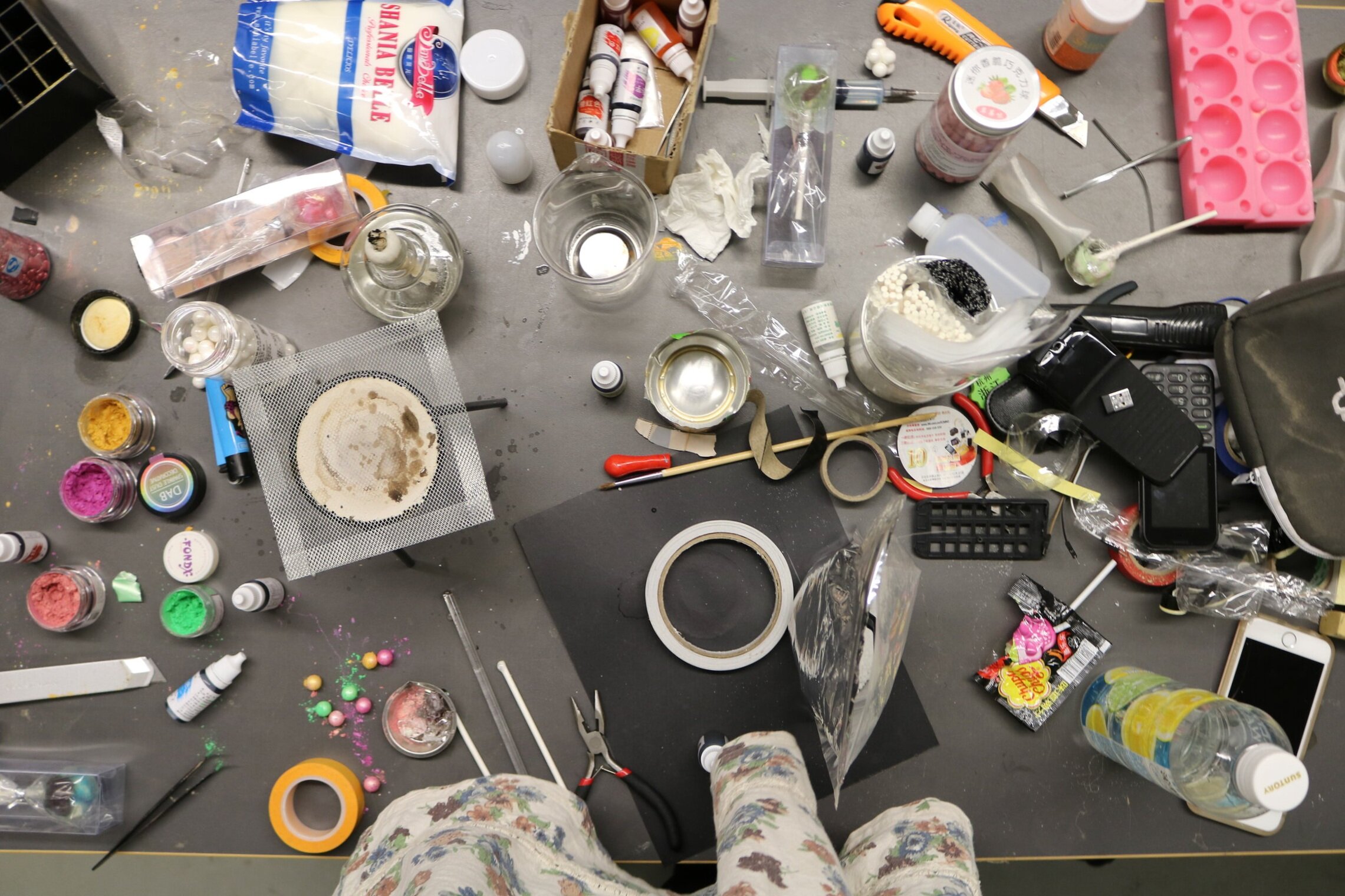CAN-D
Interactive eatable device, 2017
Collaborator: Shangjie Yan, Fanhang Meng; My role: Concept design, Hardware design, Fabrication, Documentation
Human’s sensational pleasure comes from specific electrical current and chemical substance in brain cortex. Same sensations can be accessible if we make use of related mechanism.
The CAN-D Lollipop is such a device based on the study of sensation mechanism, augmenting and designing the sensation of sucking a lollipop with sound wave of specific hertz. By learning the pattern between input signal and the specific sensation it aroused, a particular feeling could thus be revisited. Feelings can become something designable. Also, it enables people to have access to exuberant sensations regardless of their social and property status.
In this work, we try to explore the existence the physical basis of the feelings and try to make the sensory pleasure much more accessible by making use of its mechanism, empower the unprivileged ones have access to the exuberance of sensory pleasure despite their social hierarchy in a less harmful way, and help them to revisit the unforgettable pleasure through that device.
In this product we have completed the process from making lollipops, making hardware, programming and user-testing. In the end, the students in the class enjoyed our products and reflected that they did give them some of the hallucinations that they did not have in their daily lives. This proves that our lollipop products are effective on the human sensation, and it is a feasible direction for future food to study the relationship between physical eating behavior and mental pleasue.
CAN-D’s team in Art Book China 2018











